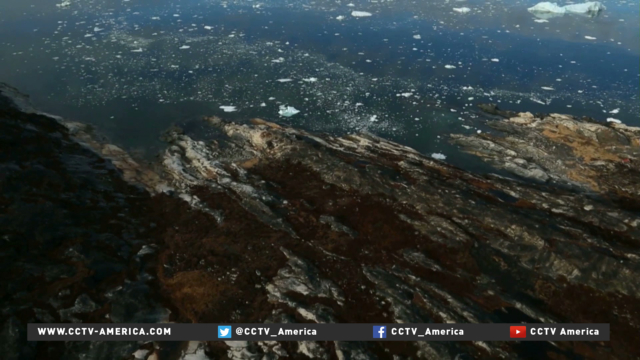Drought, severe storms and rising sea levels are becoming even worse after another record breaking year for earth. CCTV America’s Jim Spellman reported on new climate data from Washington, D.C.
Pass the ice: 2014 hottest year on record
Bernard Woods Placky of Climate Central discusses impact of El Nino
2014 was the warmest year on record in the oceans and on land, according to the latest calculations by U.S. space and weather agencies. The latest U.S. government report confirmed that the earth is getting warmer, and the scientists behind the report said man-made greenhouse gas emissions are largely to blame.
“The 10 warmest years of this record, nine of them have occurred since 2000,” NASA scientist Steven Pawson said. “That means there is a very strong tendency of the temperature of the globe to be increasing with time.”
NASA warned that if the trend continues, we could see huge impacts around the world as polar ice caps melt, increasing the risk of flooding and other extreme conditions.
“There are also a lot of implications too for increasingly severe droughts, heat waves, and droughts which can effect crop production,” Pawson said. “It can lead to more wild fires because the vegetation is very dry.”
The findings are consistent for the northern and southern hemispheres and are especially significant because 2014 was not a year with El-Nino, the cyclical phenomenon where ocean waters warm, often creating extreme weather.

Climate change deniers sometimes point to El Nino as the cause for record high global temperatures. These latest findings, along with existing research, point to the release of man-made carbon emissions as the cause of the warming planet.
“The evidence is really very strong that it is greenhouse gas increases that is causing this warming of the atmosphere of the planet,” Pawson said.
Experts said it will not be easy to reverse course and will likely require major changes in energy production, transportation, and industry.
“The only way to stop greenhouse gases increasing as they have done is basically stop emitting them, and it basically means a change in human behavior move towards alternative technologies to not use as many fossil fuels as we have done,” Pawson said.
Bernard Woods Placky of Climate Central discusses impact of El Nino
CCTV America interviewed meteorologist Bernadette Woods Placky, director of the Climate Matters Program at the nonprofit Climate Central, about the El Nino weather phenomenon.

 CGTN America
CGTN America
